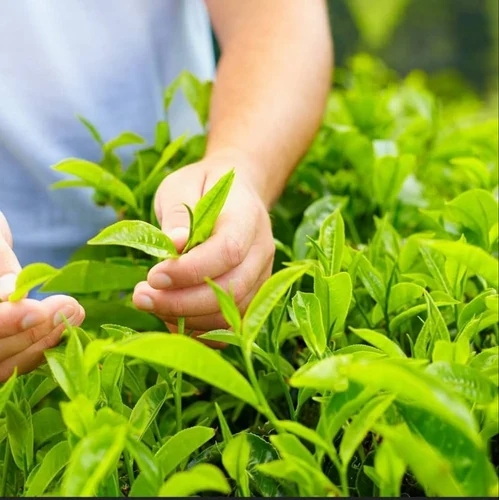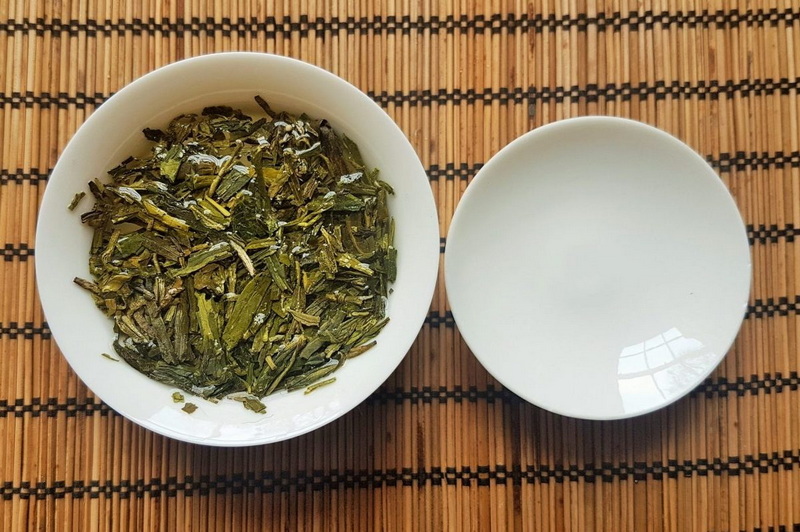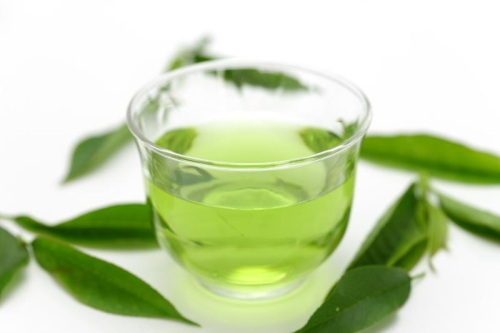Content Menu
● Introduction to Green Tea Extract
>> Composition of Green Tea Extract
● Health Benefits of Green Tea Extract
● Production of Green Tea Extract
● Safety Considerations
● Cultural Significance of Green Tea
● Modern Applications of Green Tea Extract
● Conclusion
● FAQ
>> 1. What are the main components of green tea extract?
>> 2. What are the health benefits of green tea extract?
>> 3. How is green tea extract produced?
>> 4. Is green tea extract safe to consume?
>> 5. Can green tea extract help with weight loss?
● Citations:
Green tea extract is a concentrated form of green tea, renowned for its rich content of antioxidants, particularly catechins. Among these catechins, epigallocatechin gallate (EGCG) is the most prominent and extensively studied for its health benefits. This article delves into the composition of green tea extract, its health benefits, and how it is produced.

Introduction to Green Tea Extract
Green tea extract is derived from the leaves of the Camellia sinensis plant, the same plant used to make green tea. Unlike brewed green tea, the extract is a more concentrated form, often used as a dietary supplement. It contains a high amount of polyphenols, which are powerful antioxidants that help protect the body against free radicals and oxidative stress.
Composition of Green Tea Extract
The primary components of green tea extract include:
- Catechins: These are the most abundant polyphenols in green tea extract. The main types of catechins are:
- Epigallocatechin Gallate (EGCG): The most studied and abundant catechin, known for its antioxidant properties.
- Epicatechin (EC): Another significant catechin with antioxidant effects.
- Epigallocatechin (EGC): Similar to EGCG but without the gallate group.
- Epicatechin Gallate (ECG): A gallated form of epicatechin.
- Catechin (C): The simplest form of catechin.
Catechin Composition:
- EGCG: Most abundant and researched.
- EC: Known for antioxidant properties.
- EGC: Similar to EGCG but without gallate.
- ECG: Gallated form of epicatechin.
- C: Simplest form of catechin.
- Flavonoids: These include flavonol glycosides like myricetin and quercetin glycosides.
- Phenolic Acids: Such as gallic acid and caffeic acid.
- Other Components: May include caffeine, theanine, and sugars.
Health Benefits of Green Tea Extract
Green tea extract has been associated with numerous health benefits, primarily due to its high antioxidant content. Some of the key benefits include:
- Weight Loss: Studies suggest that green tea extract can aid in weight loss by enhancing metabolism and fat burning. This is attributed to the catechins, which may increase thermogenesis and fat oxidation.
- Heart Health: It helps reduce blood pressure and cholesterol levels, which are risk factors for heart disease. The antioxidants in green tea extract may also improve blood vessel function.
- Cancer Prevention: The antioxidants in green tea extract may help prevent certain types of cancer by reducing oxidative stress and protecting DNA from damage.
- Skin Health: Green tea extract is believed to improve skin health by reducing inflammation and protecting against sun damage. It may also help reduce the appearance of wrinkles and improve skin elasticity.
- Brain Health: It may help reduce the risk of neurodegenerative diseases like Alzheimer's and Parkinson's by protecting neurons from oxidative damage.

Production of Green Tea Extract
The production of green tea extract involves several steps:
1. Harvesting: Green tea leaves are harvested from the Camellia sinensis plant. The quality of the leaves can significantly affect the final product.
2. Extraction: The leaves are then extracted using solvents like water or ethanol to obtain the polyphenol-rich extract. The choice of solvent can influence the composition of the extract.
3. Concentration: The extract is concentrated to increase the polyphenol content. This step is crucial for enhancing the potency of the extract.
4. Purification: Some extracts undergo purification to enhance the concentration of specific compounds like EGCG. This process can involve techniques such as chromatography.
Safety Considerations
While green tea extract is generally safe, excessive consumption can lead to toxicity. It is essential to consult with a healthcare professional before adding it to your diet, especially if you have any underlying health conditions. Potential side effects include:
- Liver Damage: High doses of green tea extract have been linked to liver damage in some cases.
- Interactions with Medications: It may interact with certain medications, such as blood thinners, and reduce their effectiveness.
Cultural Significance of Green Tea
Green tea has been an integral part of many cultures, particularly in Asia, for centuries. In Japan, the traditional tea ceremony is a significant cultural event that emphasizes the importance of green tea in social and spiritual contexts. Similarly, in China, green tea is consumed daily for its health benefits and is often served at social gatherings.
Modern Applications of Green Tea Extract
Beyond dietary supplements, green tea extract is used in various industries:
- Cosmetics: It is incorporated into skincare products due to its antioxidant properties, which can help protect the skin from environmental stressors.
- Food Industry: Green tea extract is used as a natural preservative and flavor enhancer in food products.
- Pharmaceuticals: Research is ongoing into its potential therapeutic applications, including cancer treatment and neuroprotection.
Conclusion
Green tea extract is a powerful dietary supplement rich in antioxidants, particularly catechins, which offer numerous health benefits. Its composition and production process make it a valuable resource for those seeking to enhance their health and well-being. However, it should be consumed responsibly and under the guidance of a healthcare professional.

FAQ
1. What are the main components of green tea extract?
Green tea extract primarily consists of catechins (such as EGCG, EC, EGC, ECG, and C), flavonoids, phenolic acids, and other compounds like caffeine and theanine.
2. What are the health benefits of green tea extract?
Green tea extract is associated with weight loss, improved heart health, cancer prevention, enhanced skin health, and potential benefits for brain health.
3. How is green tea extract produced?
The production involves harvesting green tea leaves, extracting them with solvents, concentrating the extract, and sometimes purifying it to enhance the concentration of specific compounds.
4. Is green tea extract safe to consume?
Green tea extract is generally safe but can be toxic in excessive amounts. It is advisable to consult a healthcare professional before consumption.
5. Can green tea extract help with weight loss?
Yes, green tea extract may aid in weight loss by boosting metabolism and enhancing fat burning, although results can vary based on individual factors.
Citations:
[1] https://pmc.ncbi.nlm.nih.gov/articles/PMC9231383/
[2] https://www.healthline.com/nutrition/10-benefits-of-green-tea-extract
[3] https://patents.google.com/patent/TWI607708B/zh
[4] https://patents.google.com/patent/US20160219897A1/en
[5] https://pmc.ncbi.nlm.nih.gov/articles/PMC6412948/
[6] https://pmc.ncbi.nlm.nih.gov/articles/PMC7555212/
[7] https://www.canada.ca/en/health-canada/services/food-nutrition/public-involvement-partnerships/notice-modification-list-permitted-supplemental-ingredients-permit-use-green-tea-extract-supplemental-ingredient-foods/document.html
[8] https://health.clevelandclinic.org/green-tea-extract-a-better-way-to-boost-energy-or-not






























